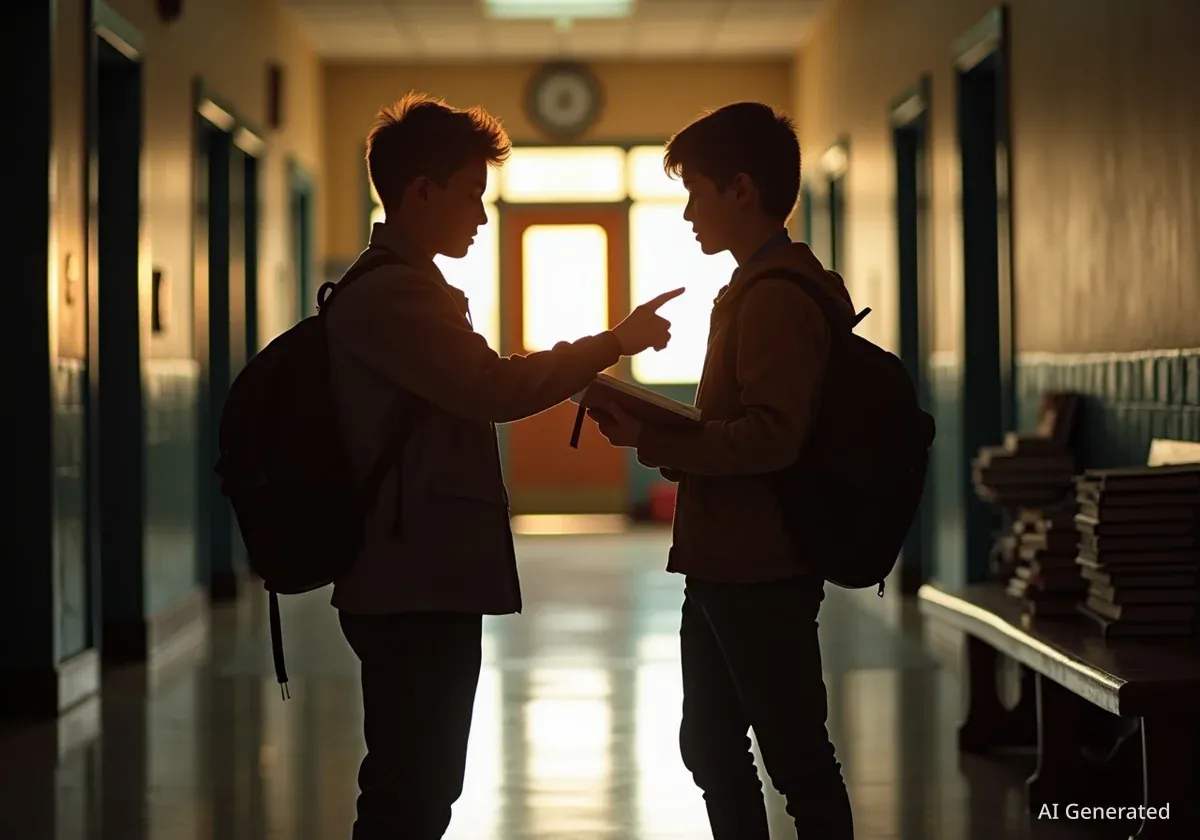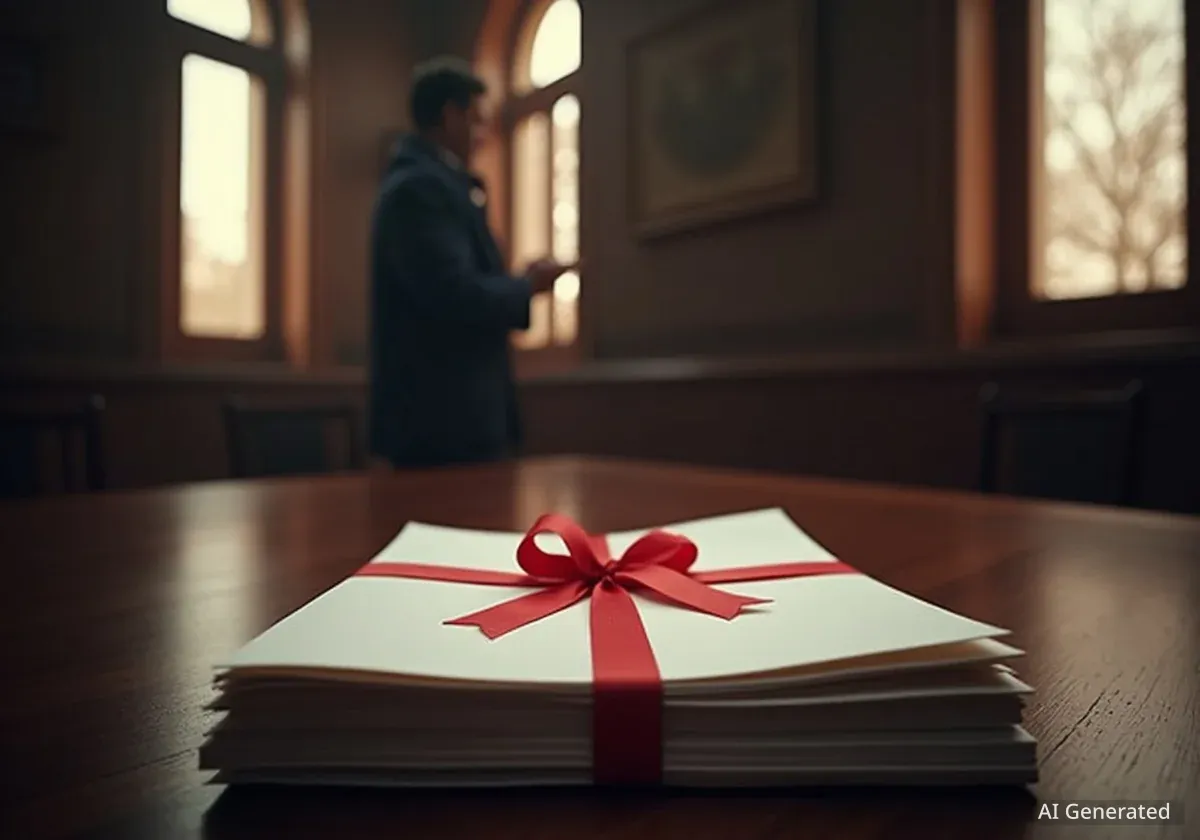In the year 2000, a group of high school students in a small, rural town faced new restrictions from an incoming principal who disapproved of their alternative style and hobbies. Instead of simply accepting the new rules, they meticulously studied the school district's official policy book, discovering legal loopholes that allowed them to protect their interests and ultimately outperform the administration's expectations.
This story of strategic thinking and malicious compliance highlights a unique conflict between student culture and administrative authority, culminating in an unexpected victory for the students at a state-level academic competition.
Key Takeaways
- A new principal in a rural high school introduced strict rules targeting students' clothing, jewelry, and lunchtime activities.
- A group of students, who identified with the emo subculture, felt they were being unfairly singled out.
- The students researched school board policies and used them to challenge the principal's directives on jewelry.
- They established an official chess club, using a rule that allowed other strategy games to be played, as a way to continue playing Magic: The Gathering.
- To prevent the club from being shut down, the students competed and placed second in the state chess tournament, securing its official status.
A Clash of Cultures in a Small Town School
The events took place in 2000 at a high school located in a small, rural community. The school culture was described as traditional, where students wearing jeans was the norm. This environment was disrupted by the arrival of a new principal from a much larger school district in Dallas.
The new administrator brought a different set of standards and immediately began implementing stricter policies. His first action was to ban pocket knives, a common accessory for many students in the area. This rule, however, was not a major point of contention.
The principal's focus soon shifted to a specific group of students who identified with the emo and goth subcultures. These students wore black clothing, chains, and trench coats, a style that stood in stark contrast to the school's prevailing culture.
Targeting Student Expression
The administration's new rules began to directly impact this group. First, a ban was placed on certain types of jewelry, including pentacles. This directive was perceived by the students as a direct attempt to regulate their personal expression.
According to one of the students involved, they and their friends were also avid players of strategy games like Magic: The Gathering and chess. This interest in rules and systems would soon prove to be their most effective tool.
Understanding School Governance
In most U.S. school districts, administrative actions are governed by a detailed set of policies established by the local school board. These policies outline the rights of students, the authority of administrators, and the procedures for creating and disbanding student organizations. Students and parents have the right to access these documents.
Students Turn to the Rulebook for Defense
Faced with the new jewelry ban, the students did not resort to simple defiance. Instead, they took a more methodical approach. With the support of their parents, they obtained copies of the official school board rules and began to study them carefully.
Their research confirmed that the principal's ban on their jewelry was not supported by district policy. When they presented this information, the principal was forced to relent on that specific issue. However, his efforts to control their activities did not stop there.
The principal then prohibited the students from playing Magic: The Gathering during their lunch break. The official reason given was that the game was making other students uncomfortable. This new restriction prompted the group to look for another solution within the school's own regulations.
The Rise of Strategy Games
Magic: The Gathering, a collectible card game released in 1993, became immensely popular throughout the 1990s and 2000s. It is known for its complex rules and strategic depth, often appealing to the same audiences that enjoy traditional strategy games like chess.
The Chess Club Gambit
Once again, the students found their answer in the school board's policy book. The rules provided a clear pathway for their activities: they could form an official, school-sanctioned club with a teacher as a sponsor. They discovered a specific provision that would be central to their plan.
The policy stated that within a chess club, members were permitted to play any game that involved strategy, as long as chess was also being actively played. This was the loophole they needed.
Executing the Plan
The students successfully recruited a teacher to sponsor their new organization and officially established the school's chess club. Their lunchtime gatherings now had official protection. During their meetings, a few members would play a game of chess, satisfying the club's primary charter.
Meanwhile, the rest of the club's members—around a dozen students—would play Magic: The Gathering. For several weeks, this arrangement went unnoticed by the administration.
"He loses his mind, says we’re through, and to shut it down," recalled one of the students about the principal's reaction upon discovering their setup. "We were prepared, though."
From Loophole to State Champions
When the principal inevitably discovered how the club was operating, he immediately attempted to disband it. However, the students had done their homework and were ready for this challenge. They pointed to another rule in the district policy book.
This rule stipulated that an official club could not be shut down without full approval from the school board, unless the club was not actively competing. This gave the students a clear path to securing their club's future: they needed to compete.
The members of the newly formed chess club began practicing seriously. They entered the state chess tournament, representing their small rural high school. In a surprising turn of events, their dedication paid off. The team went on to place 2nd in the state competition.
This achievement not only brought recognition to their school but also provided their club with the ultimate protection. As an actively competing and successful team, their status was secure. The principal no longer had any grounds to shut them down, and the students were able to continue their lunchtime games for the remainder of their time at the school.





